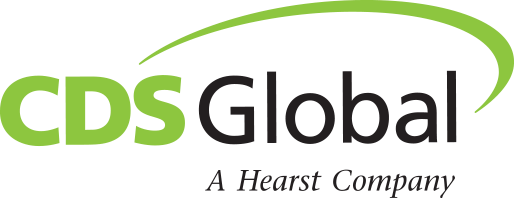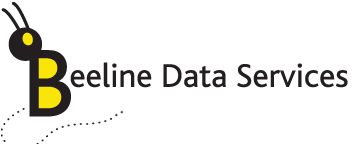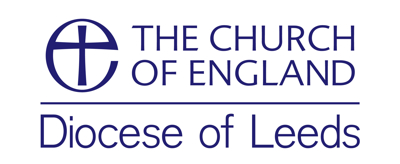Blog
Thoughts, opinions and day-to-day ramblings
Transforming Business: Replacing Legacy COBOL Systems with Modern Web-Based Solutions

In the ever-evolving landscape of technology, businesses are constantly seeking ways to stay competitive, efficient, and adaptable. For many enterprises, this means addressing the elephant in the room – legacy COBOL systems. While COBOL has served as a robust programming language for decades, the need for agility and modern features calls for a transition towards contemporary, web-based solutions. Dev Partners Ltd explore the process of modernising legacy systems, alternatives to COBOL, challenges associated with the transition, and the role of cloud computing services in this transformation.
How does Dev Partners Ltd modernise a legacy system?
Modernising a legacy system involves a strategic approach that combines technology, expertise, and careful planning. Here are key steps to consider when embarking on the journey of modernisation:
-
1. Assessment and Understanding: Begin by conducting a comprehensive analysis of the existing COBOL system. Understand its architecture, dependencies, and functionalities. This step is crucial for identifying potential challenges and devising an effective modernisation strategy.
-
2. Define Goals and Prioritise: Clearly define the goals of modernisation. Prioritise features, functionalities, and improvements that align with the business objectives. This helps in creating a roadmap for the modernisation process.
-
3. Choose the Right Technology Stack: Select a modern web-based technology stack that suits the business requirements. This may include programming languages like Python, Java, or JavaScript, along with robust frameworks and databases all of which Dev Partners has experience in.
-
4. Incremental Approach: Adopt an incremental approach to minimise risks and disruptions. Break down the modernisation process into manageable phases, allowing for continuous testing and validation.
-
5. Data Migration: Develop a robust data migration strategy to ensure a seamless transition of data from the legacy system to the new environment. This is a critical aspect of modernisation, and careful planning is essential to avoid data integrity issues.
What can I replace COBOL with?
As businesses look to replace COBOL, there are several modern alternatives that offer enhanced features and scalability:
-
1. Python: Known for its readability and versatility, Python is a popular choice for web development. Its extensive library support and simplicity make it an excellent replacement for COBOL.
-
2. Java: Renowned for its portability and compatibility, Java is a robust programming language that is widely used in web development. It provides a strong foundation for building scalable and secure applications.
-
3. JavaScript: As the language of the web, JavaScript is essential for creating dynamic and interactive user interfaces. Coupled with frameworks like React or Angular, it forms a potent combination for modern web-based systems.
-
4. .NET Core: Microsoft's .NET Core is a cross-platform, open-source framework that supports multiple programming languages. It is suitable for building high-performance, scalable applications.
What challenges are involved with replacing legacy systems with new systems?
While the benefits of modernisation are evident, the process is not without its challenges:
-
1. Legacy Code Complexity: Legacy COBOL systems often contain intricate and convoluted code. Understanding and untangling this complexity is a significant challenge, requiring in-depth knowledge and expertise.
-
2. Data Migration Risks: Migrating data from a legacy system to a new one poses risks of data corruption and loss. Dev Partners ensures data integrity during the transition which is a critical challenge that demands meticulous planning.
-
3. Integration Issues: Integrating the new system with existing applications and third-party services can be challenging. Compatibility issues may arise, requiring careful consideration and implementation of effective integration strategies.
-
4. User Training and Acceptance: Introducing a new system requires users to adapt to the changes. Providing adequate training and ensuring user acceptance is a crucial challenge in the modernisation process.
Is it easy to replace legacy systems with cloud computing services?
Cloud computing services offer a compelling solution for modernising legacy systems, providing scalability, flexibility, and cost-effectiveness. However, the ease of migration depends on various factors:
-
1. Compatibility: Assess the compatibility of the existing system with cloud platforms. Some legacy systems may require modifications to seamlessly integrate with cloud services.
-
2. Data Security and Compliance: Ensure that the chosen cloud service adheres to industry-specific regulations and security standards. Data security and compliance are paramount, especially in sectors like finance and healthcare.
-
3. Cost Considerations: While cloud computing can reduce infrastructure costs, it is essential to carefully evaluate the overall cost of migration and ongoing maintenance. Unexpected expenses may arise if not accounted for in the planning phase.
-
4. Performance Optimisation: Optimise the performance of the new system on the cloud to leverage the full benefits of scalability and resource allocation. This may require fine-tuning and continuous monitoring.
The journey from legacy COBOL systems to modern web-based solutions is a significant undertaking that demands careful planning, expertise, and a phased approach. While challenges exist, the rewards in terms of improved efficiency, scalability, and competitiveness are well worth the investment.
Dev Partners in Kent specialises in transforming legacy systems into cutting-edge solutions. Contact us today to discuss your specific requirements and embark on the path of digital transformation.
Published















